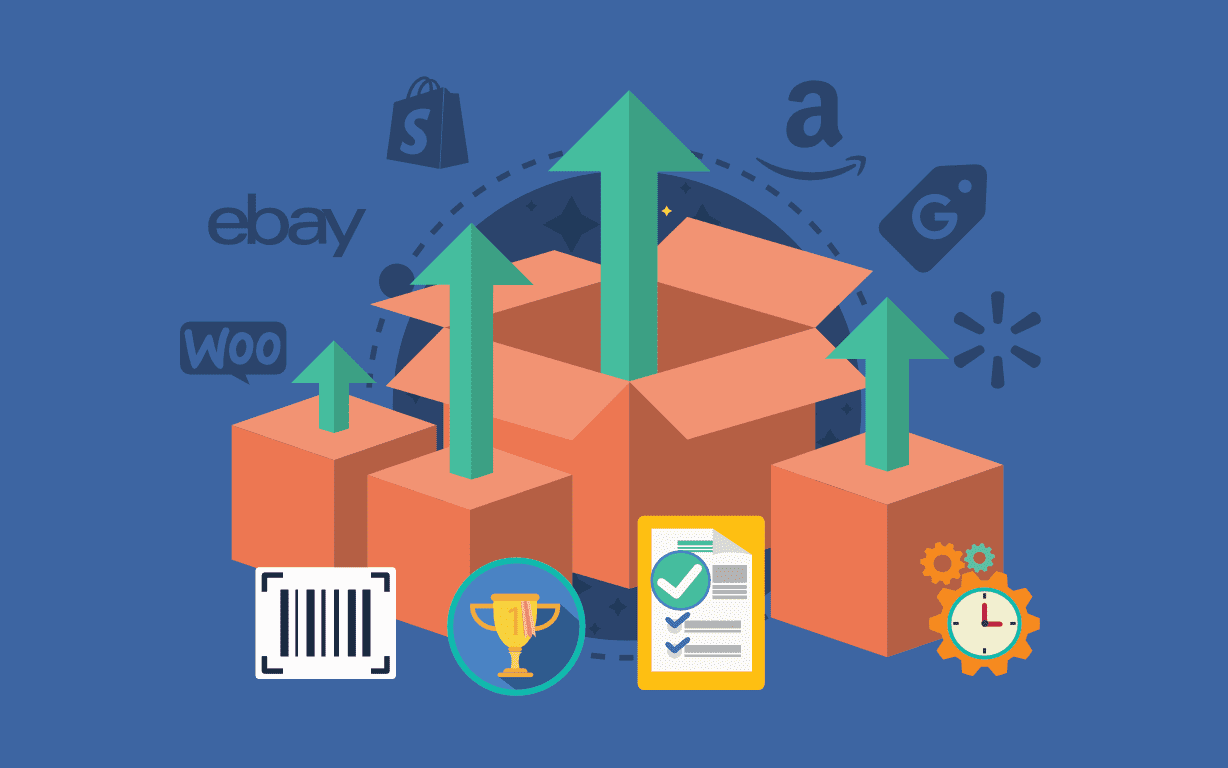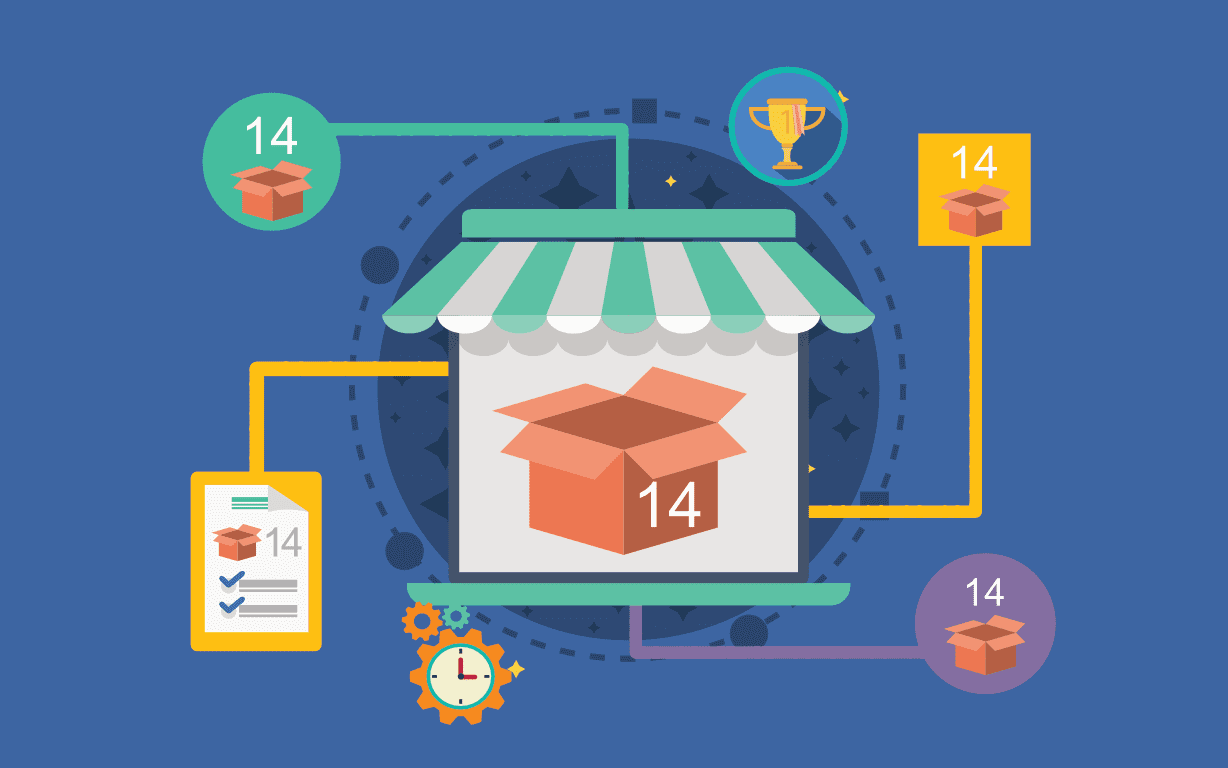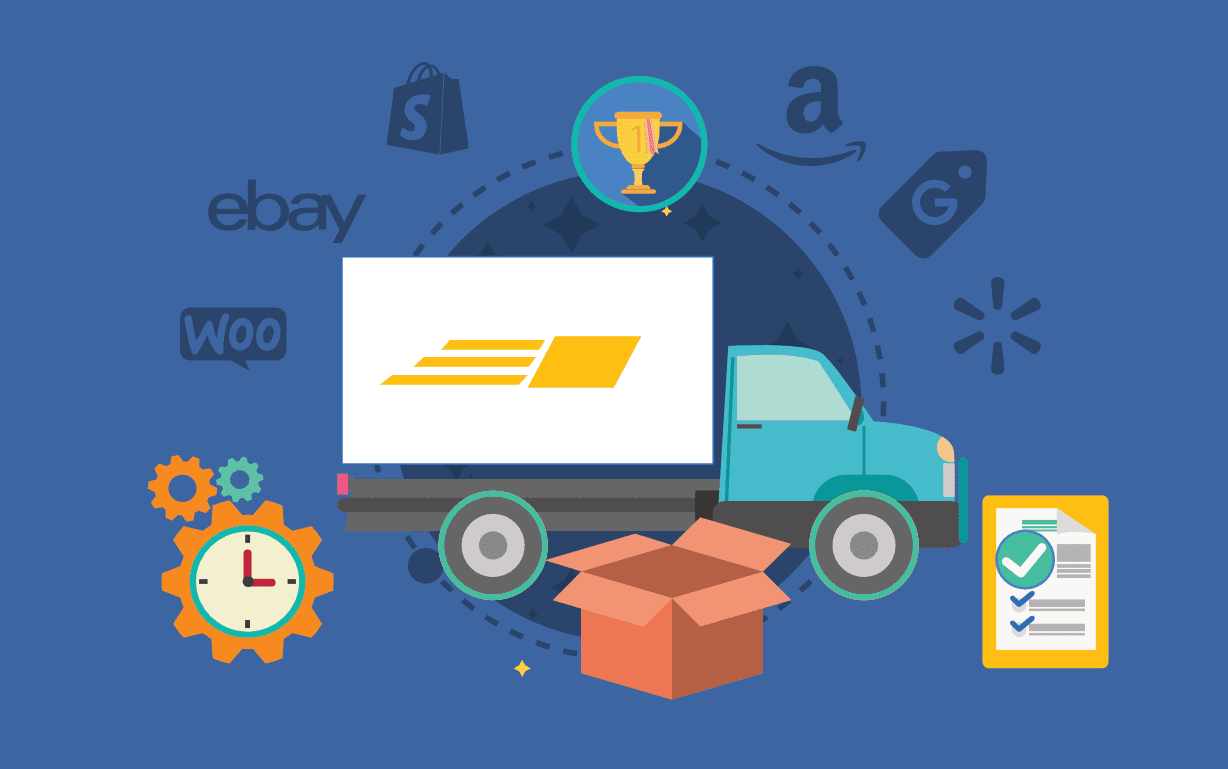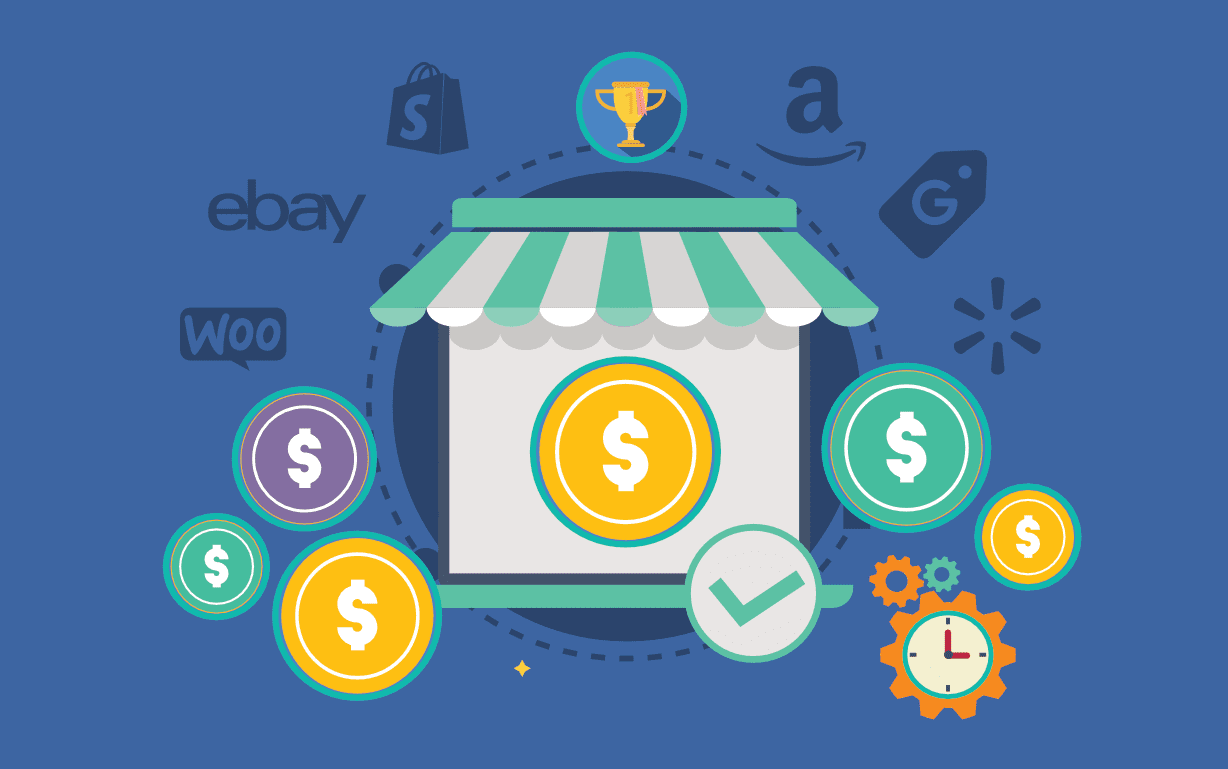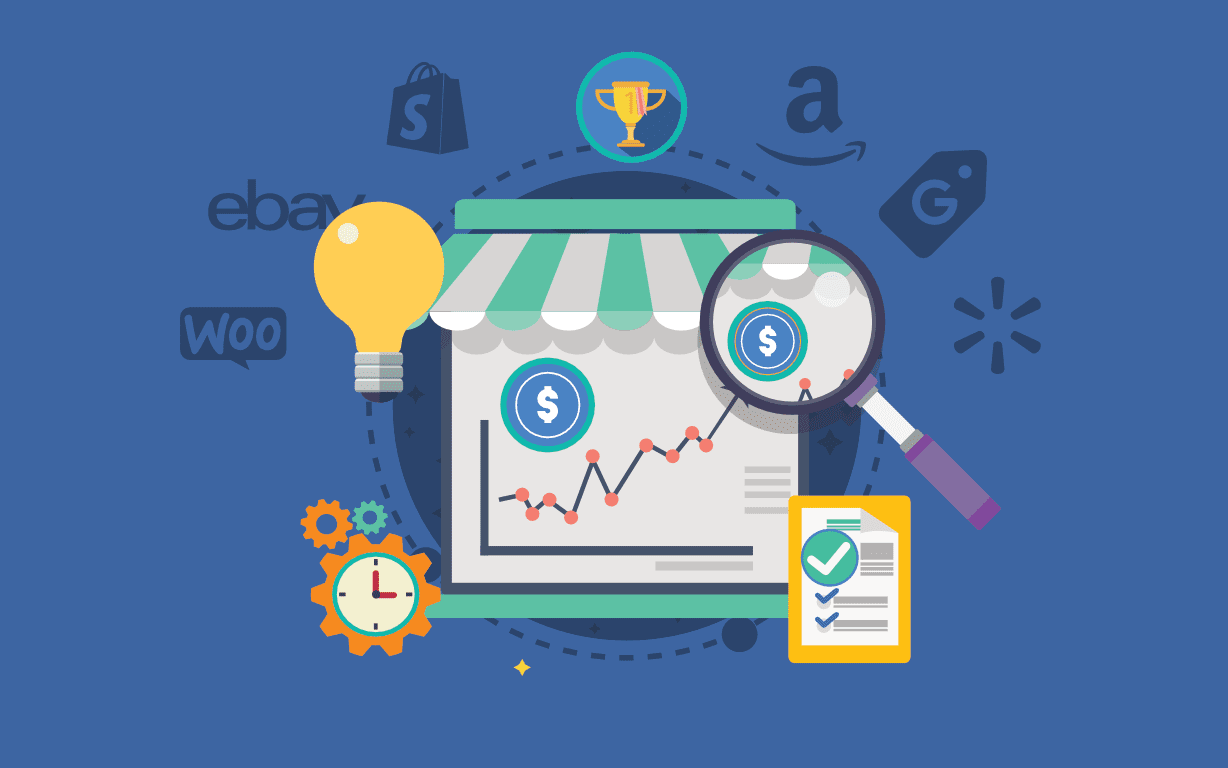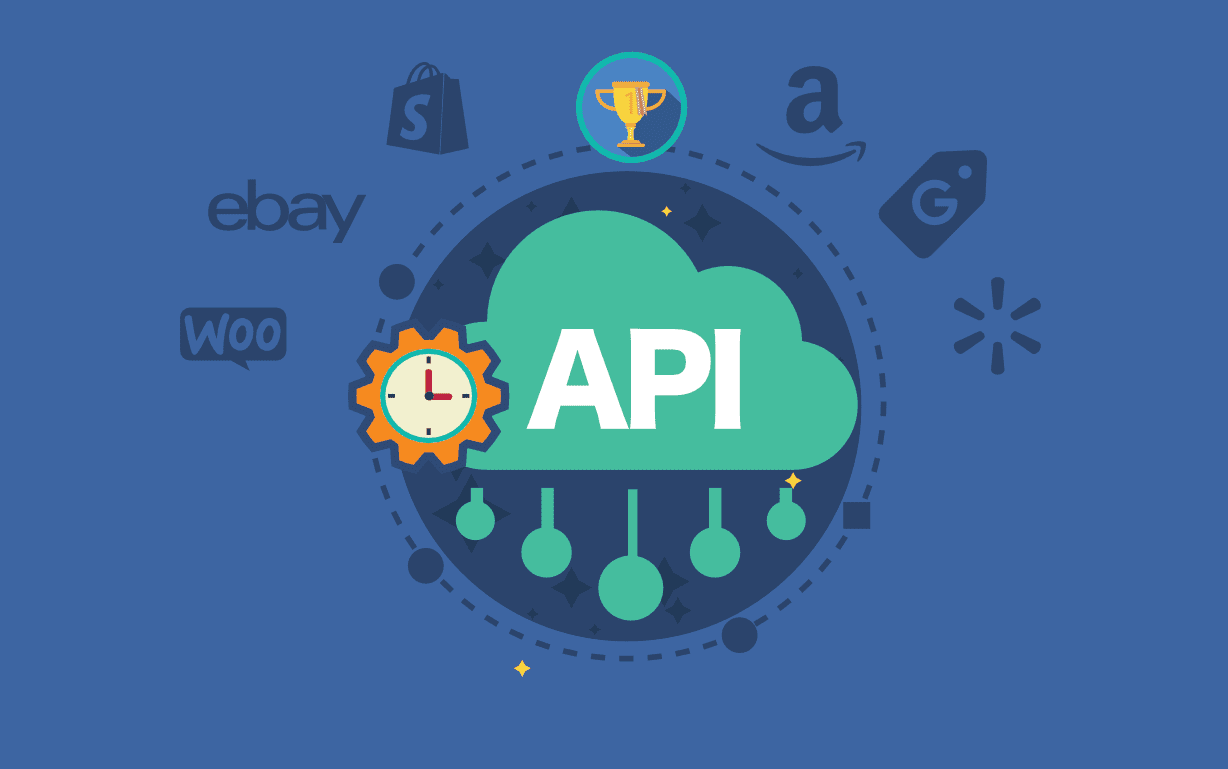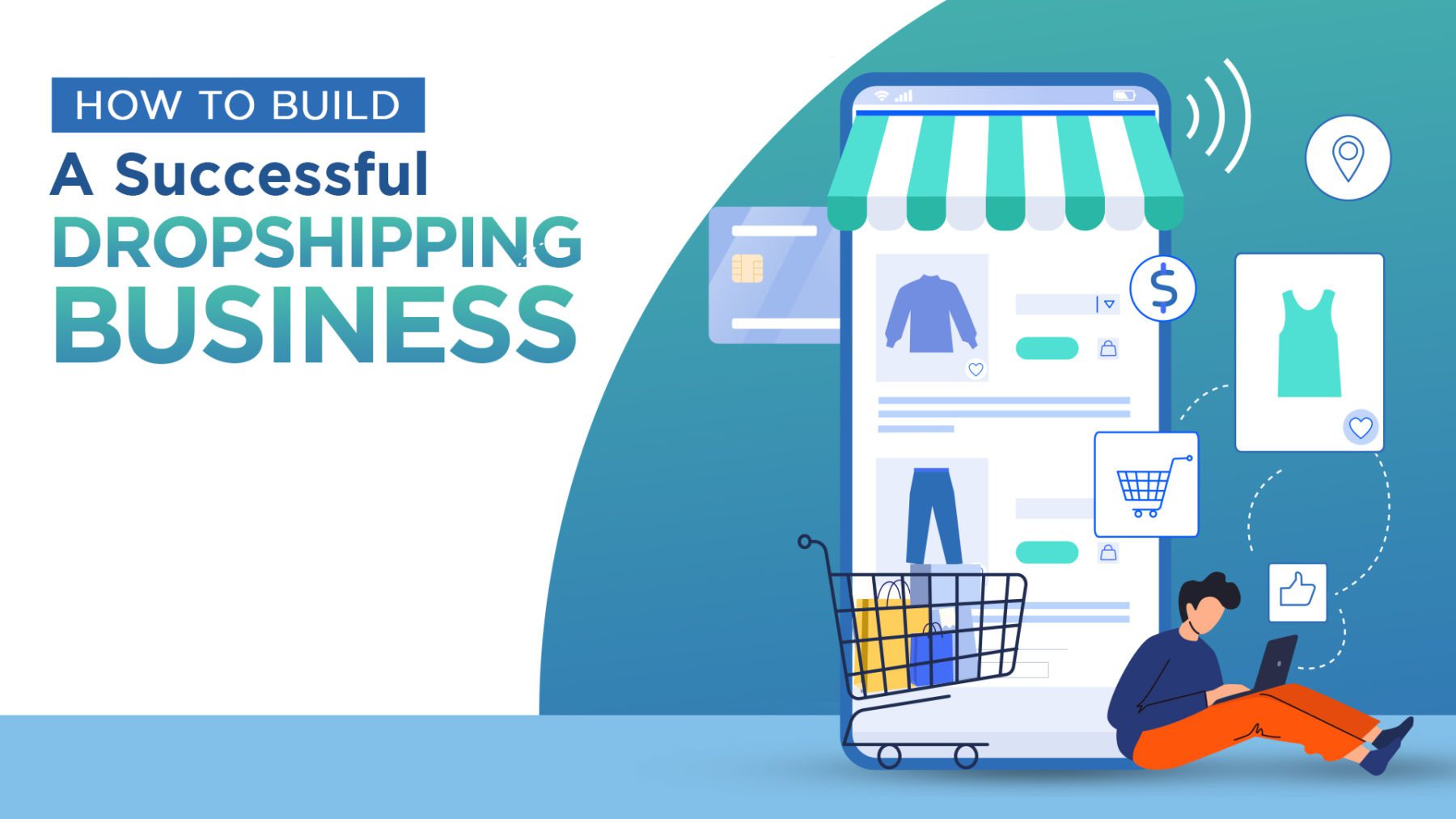
How to Build a Successful Dropshipping Business in 2021
Imagine starting an online business—but without having to worry about manufacturing, inventory, and shipping. Sounds interesting, right?
That’s precisely what a dropshipping business promises you.
With its low entry barrier and startup costs, dropshipping is an excellent way to enter the eCommerce space. The industry is on the rise too, and it’s expected to grow to $557.9 billion by 2025.
But while it’s attractive, dropshipping requires as much planning, research, and commitment as any other business. Lucky for you, we’ve prepared a guide to help you get off on the right foot and build a solid dropshipping business for yourself.
This article will take you through every important stage of establishing a dropshipping business. But before we get started, let’s first understand what dropshipping is and how it works.
What is a Dropshipping Business?
Dropshipping is a business model where you don’t keep the items you sell in stock. It’s only when a customer places an order with you that you buy the item from a third-party supplier (a wholesaler or manufacturer), who then delivers it directly to the customer.
So, it involves three main players:
- The manufacturer—who produces items, manages inventory, processes orders, and ships them to customers.
- You (the seller)—who sell the manufacturer’s products on your website under your name.
- The customer—who places orders on your website and contacts you in case of any inquiries regarding products
The customer purchases the product from your store at retail price, while you pay the supplier the wholesale price—the difference becomes your profit.
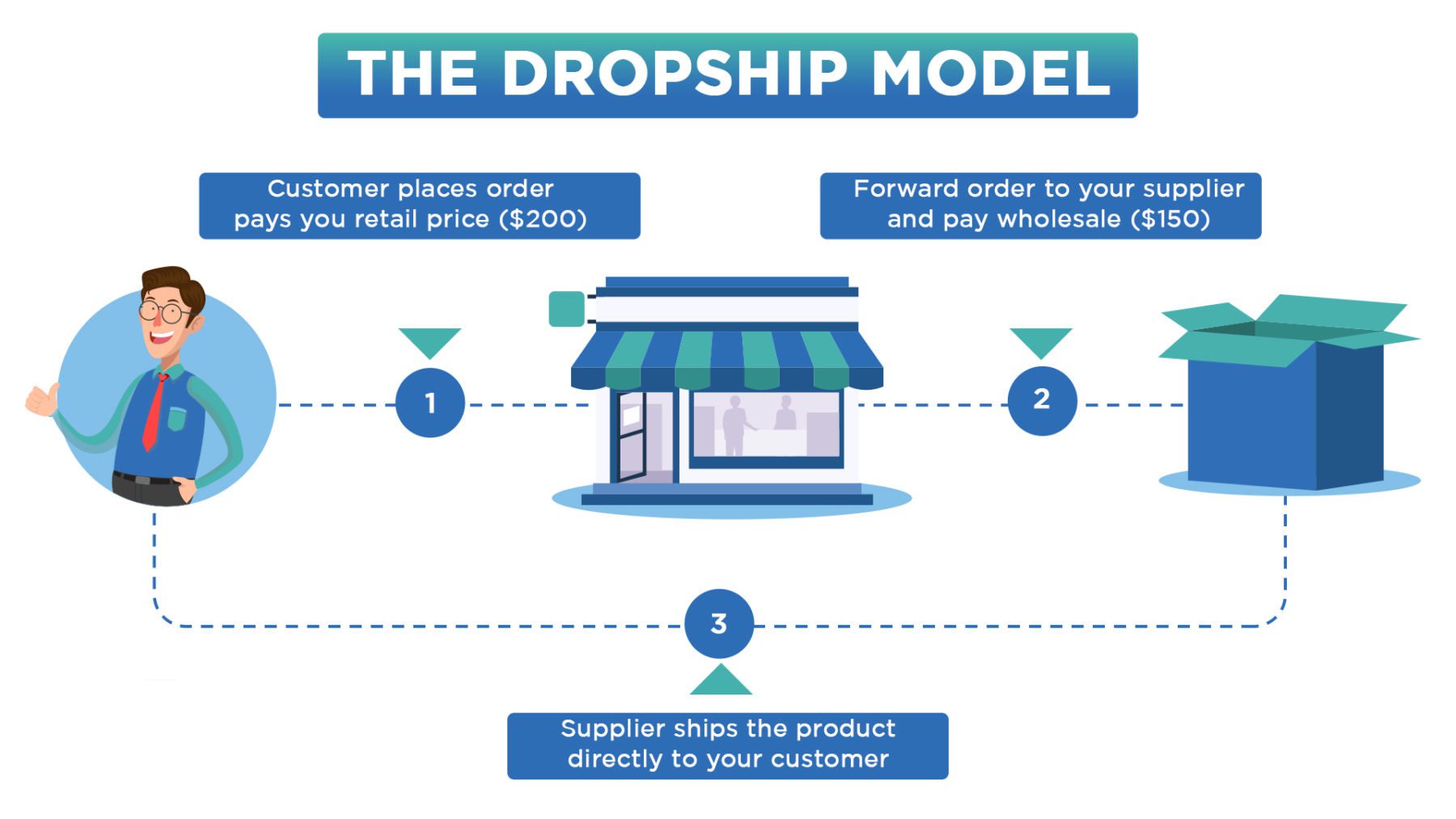
Is Dropshipping Profitable?
As the idea suggests, a dropshipping business can be highly profitable since you’re not responsible for producing, packaging, and shipping items. You also don’t have to manage an inventory of products and only purchase them once a customer has placed an order and paid you.
This business is easy to set up, requires little upfront capital, and has no location barriers. Moreover, it reduces the overhead expenses of running a business as you don’t have to manage a warehouse, hire employees, or maintain unsold inventory.
6 Steps to Build a Successful Dropshipping Business in 2021
The benefits of dropshipping make it a lucrative path to pursue. However, it can only be profitable if you start the right way. Let’s see how:
1. Pick a profitable niche
The first step in starting a dropshipping business is to pick a niche and the products you’ll sell within it.
While it’s great to choose a niche you’re interested in, it’s also essential to assess its demand to identify whether it can bring you profits.
Use tools like Google Trends and Ubersuggest to understand how popular a niche is and the potential it holds. These tools can also help you define your target audience—down to their age, gender, and location.
You can also check out the “best sellers” on marketplaces such as Amazon and eBay to see what niches and products are in demand.
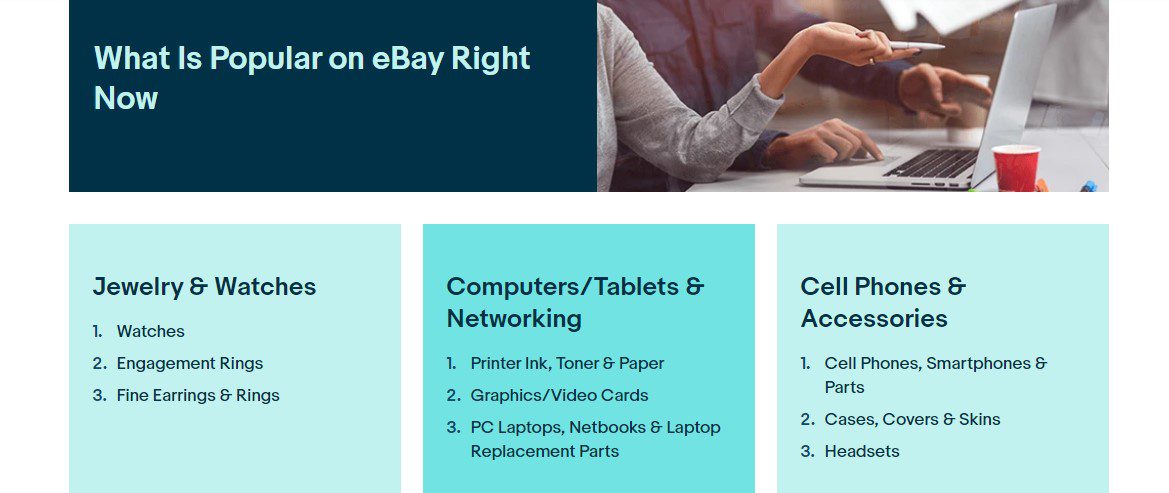
Generally, it’s best to start dropshipping in products that are small, lightweight, easy and inexpensive to ship, or scarce in a particular location. You can also consider selling lower-priced items since their profit margins are comparatively higher.
2. Conduct competitor research
Before finalizing your niche, perform competitor research to understand the market you’re entering and the demand for products you want to sell.
Here, remember that it can be tempting to go for products with little to no competition, but less competition can also mean that these products have low demand, which will ultimately affect your profitability.
That being said, here’s how you can start with competitor research and validate your business idea:
- Search the name of your product/niche on Google and analyze the companies that show up at the top. See what they sell, where, and their best-selling products.
- Use tools like SimilarWeb, Moz, and Ahrefs to assess their websites and see which products they’re selling and how.
- Check out their social media pages, and notice the following they have and the marketing techniques they use.
This will help you understand the level of competition in your niche, see what your competitors offer, and what you can do to one-up them.
Pro tip: Check reviews on your competitor’s store and products and see what customers usually complain about. Use those complaints as your areas of focus so that you can set up a better dropshipping store than them.
3. Find the right supplier
Suppliers are the backbone of your dropshipping business, and you need to spend good time researching and finding the right ones so it runs smoothly. .
To start with, you can find suppliers by running a Google search for wholesalers or manufacturers in your niche.
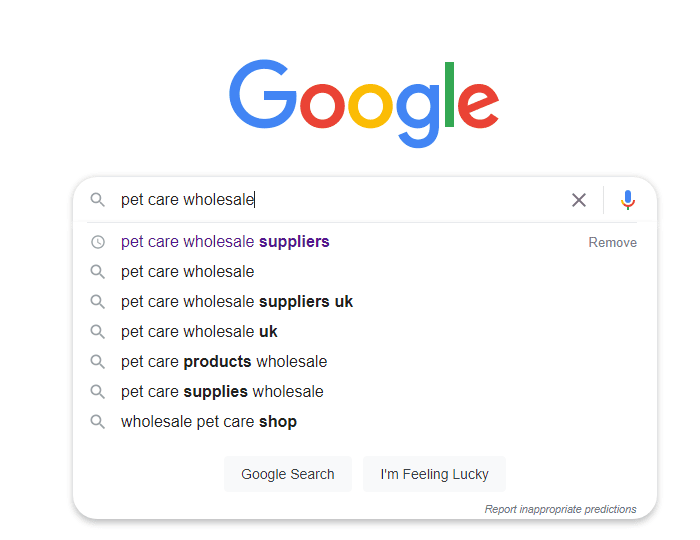
Here, make sure to search extensively—go through several pages of Google so you can explore different suppliers and shortlist the best ones for your business.
Another way to find suppliers is to browse wholesale directories available on SaleHoo, Worldwide Brands, and Wholesale Central. These directories give you a database of vetted dropshippers—you can sort them based on your market or product and easily find suitable suppliers with their contact details and reviews.
Besides these, you can even look up niche suppliers on websites like Amazon and Alibaba.
No matter what method you choose, make sure your suppliers:
- Have experience in this business.
- Are reliable and easy to contact.
- Offer quality products at the best price.
- Have suitable policies to handle returns or damaged goods.
- Offer favorable shipping costs and times.
Before finalizing your supplier, you can even place an order with them to see how they work and check the product quality for yourself.
Finding suppliers while manually handling all your dropshipping processes can be quite tedious. This is where SellerChamp can help: it offers an easy way to connect with new, vetted suppliers, import products and automate quantity sync and pricing for consistency and inventory management.
4. Create and launch your dropshipping store
Now that you know what products you’ll sell and how it’s time to set up your dropshipping store. There are many ways you can go about this.
You can start an eCommerce website from scratch—although this might be time-consuming, costly, and require technical expertise.
A better option is to create your store on platforms like Shopify. These platforms make setup and designing quick and easy with their user-friendly interface and extensive support. Since there are various platforms you can choose from, make sure to research each one’s features and prices before deciding.
If you don’t want to create a store from the ground up, you can also find and buy a ready-made Shopify dropshipping business on Exchange.
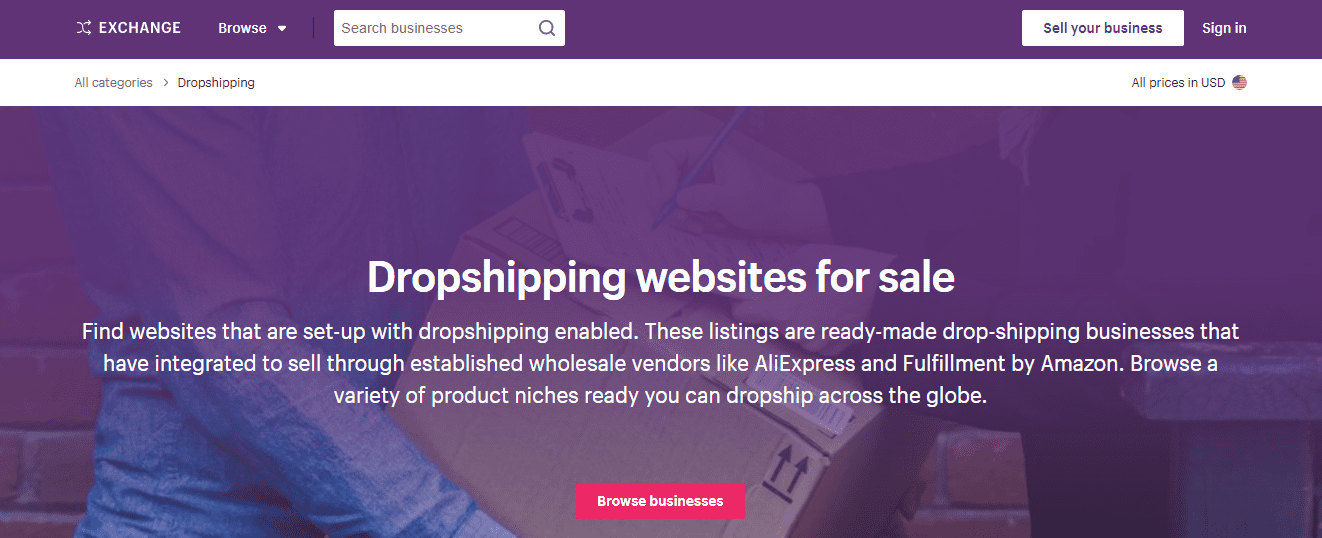
Besides these, selling on marketplaces such as Amazon and Etsy is also a great option.
Bonus tip: No matter which platform you choose, you can use a tool like SellerChamp to list and cross-sell your products on other platforms and get more customers.
At this stage, it’s also important to decide your business name, pick and register your domain name (preferably a .com), and acquire the necessary business licenses.
And, since you’ve decided on your suppliers and know their wholesale prices, you should also determine your profit margins and create a pricing strategy. Then, your business will be ready to launch!
5. Market your dropshipping business
As a dropshipping business owner, your primary concern is not shipping or inventory but customer acquisition. And promoting your business is critical to reach and acquire new customers.
Here are some ways you can promote your store and attract your target customers:
- Use an opt-in form to capture emails of people who visit your online store. Keep these leads engaged through newsletters offering special discounts and deals.
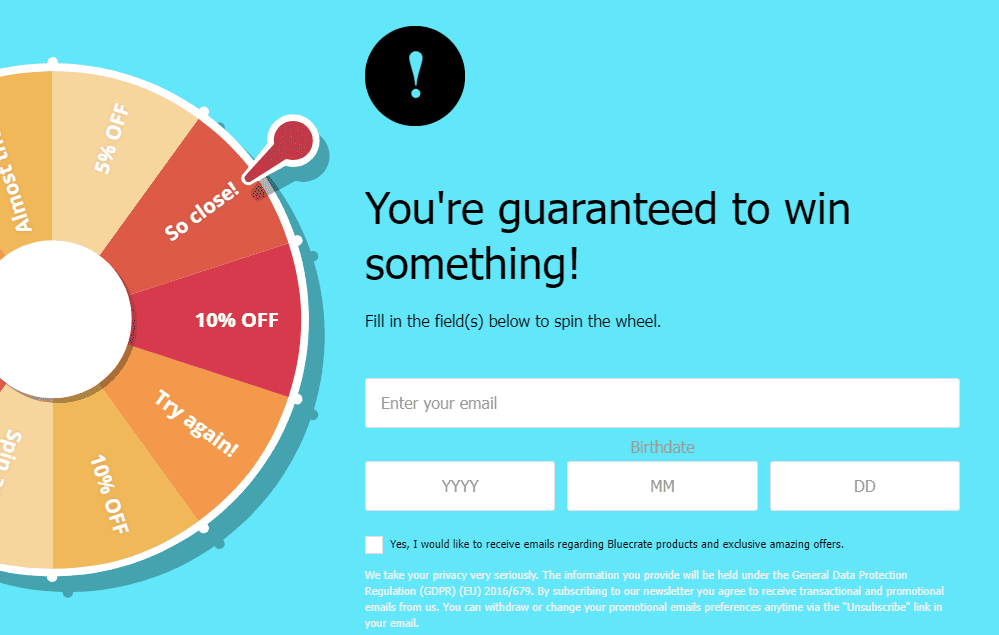
- Build your brand and audience on social media channels like Instagram and Facebook, like Mooshe Socks here. You can also start selling directly through these platforms.
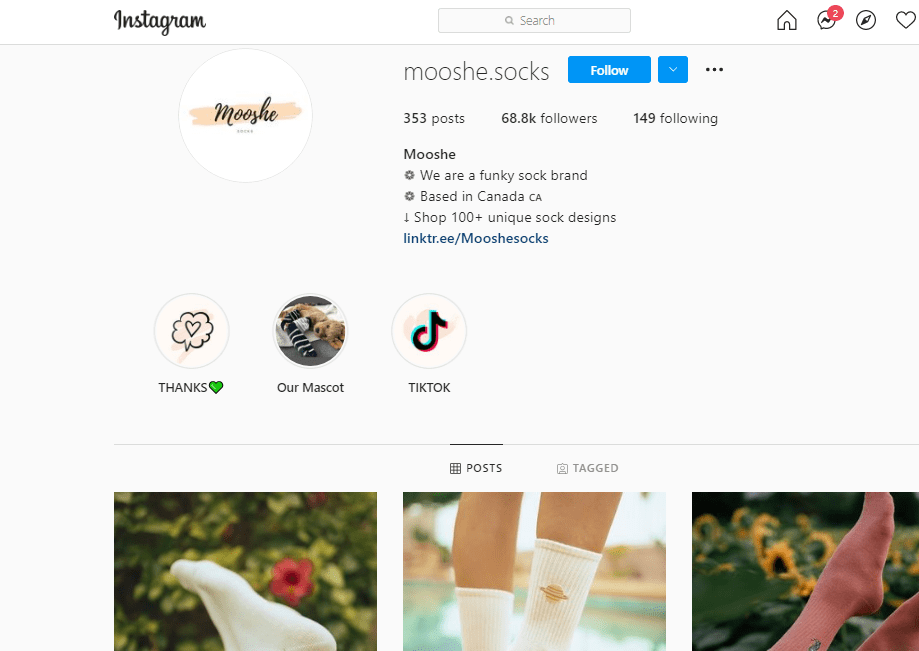
- Create and run ads on social media to place your products and offers right in front of your target audience.

- Focus on search engine optimization—use keywords your audience searches for in your landing pages, product descriptions, and categories. Bluecrate, a dropshipping store selling personalized gifts, is a great example of this.
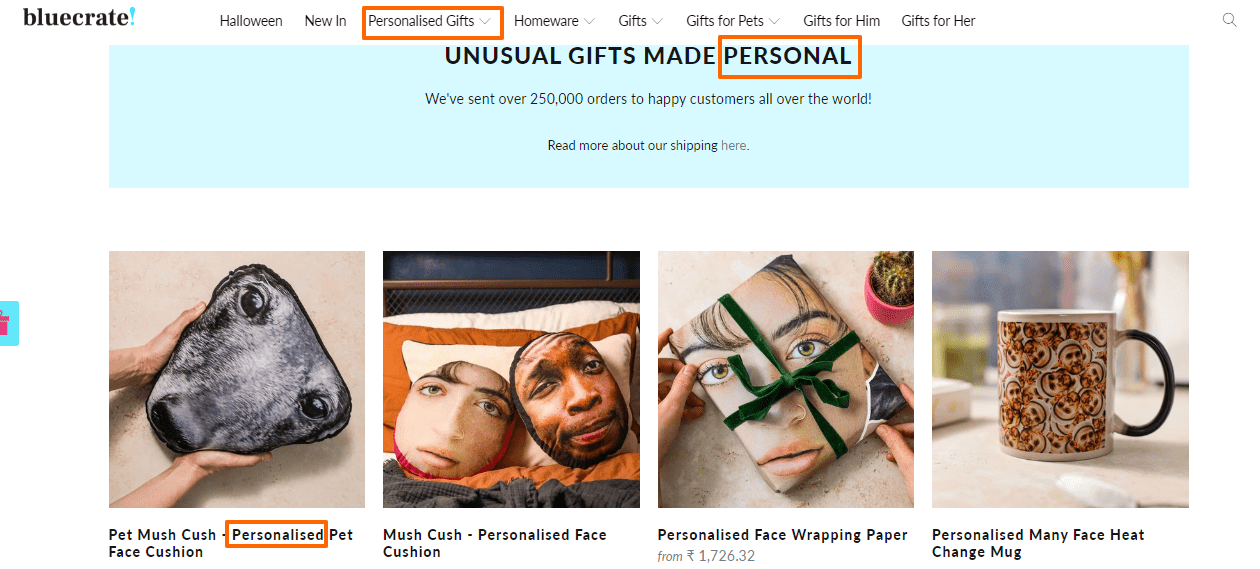
Remember: These marketing tactics can take time to show results, but they are crucial to building brand awareness and recall value.
6. Improve and optimize your store
Once you launch your store, you should regularly track and analyze metrics to see what’s working and what’s not to improve your store and optimize it for driving more sales.
Some metrics and data you should keep a tab of are:
- Website traffic
- Conversion rate
- Card abandonment rate
- Customer lifetime value
- Best-selling products
- Where you’re getting customers from and how
- Your pricing as compared to your competitors
Next, keep improving and optimizing different elements of your website based on the information you gather.
Some great modifications you can make to your store as you grow are:
- Adding social proof and improving product photographs to boost conversions.
- Offering multiple payment options to reduce cart abandonment.
- Creating an FAQ section to help and build trust with visitors.
- Investing in content marketing to increase website traffic and attract customers.
- Improving your customer service by offering mail and phone support.
- Adding more products to your catalog based on what your customers like.
The key is to provide an excellent experience to customers from start to end—to increase their chances of returning to your store.
How to Build a Successful Dropshipping Business in 2021: Final thoughts
Dropshipping is one of the best ways to start an online business. All you practically need to begin is a profitable idea, a reliable supplier, and a platform where you’ll sell products.
But while it may be easy to set up, sustaining a dropshipping business requires consistent efforts and monitoring.
Use the points mentioned in this article to build a strong foundation for your business and make it a good run for your business!


